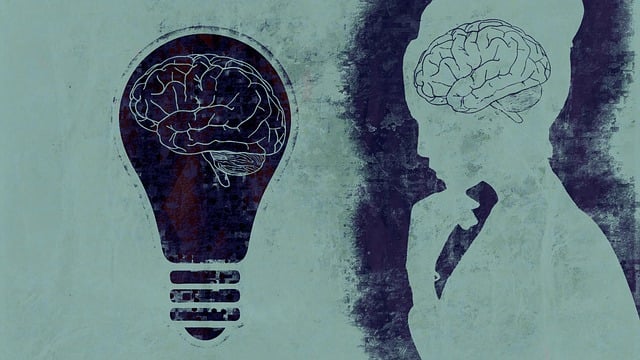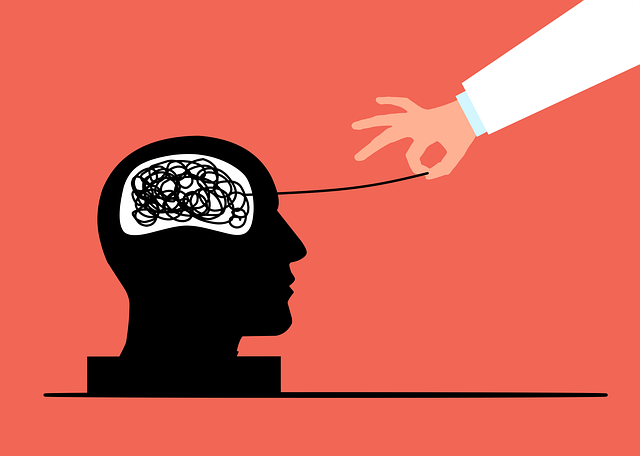Adjustment Disorder, triggered by significant life changes, causes emotional and behavioral issues like anxiety and depression. Unaddressed, it severely impacts daily life. Effective harm minimization involves understanding the disorder, utilizing therapy (including Cognitive Behavioral Therapy) and Mind Over Matter principles, participating in Stress Management Workshops, and considering tailored therapy for Adjustment Disorder. Comprehensive risk assessments, addressing underlying factors, self-care practices, and coping strategy development are key to successful treatment plans that enhance well-being and mitigate risks.
Risk assessment and harm minimization planning are essential components of effective therapy, especially when addressing complex issues like Adjustment Disorder. This article explores two critical aspects of treating this condition. Firstly, we delve into understanding adjustment disorder, its causes, and the associated risks. Then, we discuss the pivotal role of risk assessment in therapeutic processes, followed by a comprehensive guide to developing harm minimization plans tailored for individuals dealing with adjustment disorder, focusing on evidence-based strategies for long-term well-being.
- Understanding Adjustment Disorder and Its Risks
- The Role of Risk Assessment in Therapy
- Developing a Comprehensive Harm Minimization Plan
Understanding Adjustment Disorder and Its Risks

Adjustment Disorder is a mental health condition that can arise when an individual struggles to cope with significant life changes or stressors. It often manifests as a range of emotional and behavioural symptoms, such as anxiety, depression, irritability, and difficulty concentrating. This disorder can significantly impact daily functioning and relationships, especially if left unaddressed.
Understanding Adjustment Disorder is crucial for effective harm minimization planning. Those affected may benefit from therapy, which can include various approaches like cognitive-behavioural therapy (CBT) that focuses on challenging negative thought patterns and promoting positive thinking. Mind Over Matter principles can also be a powerful tool, encouraging individuals to reframe their mindset and adopt resilience. Additionally, participating in Stress Management Workshops within organizations or communities can equip people with coping strategies to navigate life’s challenges more effectively.
The Role of Risk Assessment in Therapy

In the realm of therapy for Adjustment Disorder, risk assessment plays a pivotal role in crafting an effective treatment plan. It involves a meticulous evaluation of various factors that could potentially impact a client’s well-being during and after therapy. By identifying risks, therapists can proactively develop strategies to mitigate harm, ensuring a safer and more supportive environment. This process is crucial for fostering resilience and promoting positive outcomes.
Social Skills Training, Burnout Prevention, and Trauma Support Services are integral components that may be incorporated based on the assessment’s findings. Through a comprehensive risk assessment, therapists gain valuable insights into the client’s unique challenges, enabling them to customize treatment approaches. Such personalized care not only enhances the likelihood of success but also fosters a sense of empowerment, encouraging clients to actively participate in their journey towards recovery and adjustment.
Developing a Comprehensive Harm Minimization Plan

In developing a comprehensive harm minimization plan, it’s crucial to understand and address underlying factors that contribute to potential risks. For individuals dealing with adjustment disorder, a mental health condition often stemming from significant life changes or traumas, proactive measures are essential. This involves not only identifying triggers but also implementing effective coping strategies and self-care practices. Therapy for Adjustment Disorder plays a pivotal role in this process by equipping individuals with the necessary tools to manage stress, anxiety, and potential harm.
A robust harm minimization strategy should encompass various elements, including depression prevention techniques, as adjustment disorder can sometimes lead to or exacerbate depressive symptoms. By fostering resilience through coping skills development, individuals gain the ability to navigate challenging situations healthily. This holistic approach ensures that self-care practices are not just encouraged but also integrated into daily routines, thereby promoting long-term well-being and mitigating risks effectively.
Risk assessment and harm minimization planning are essential components of therapy for Adjustment Disorder, enabling professionals to navigate complex cases effectively. By understanding the disorder’s risks and implementing comprehensive strategies, therapists can foster resilience and support individuals in managing challenges. This structured approach ensures that those struggling with adjustment issues receive tailored interventions, ultimately enhancing their well-being and promoting positive outcomes in therapy.














